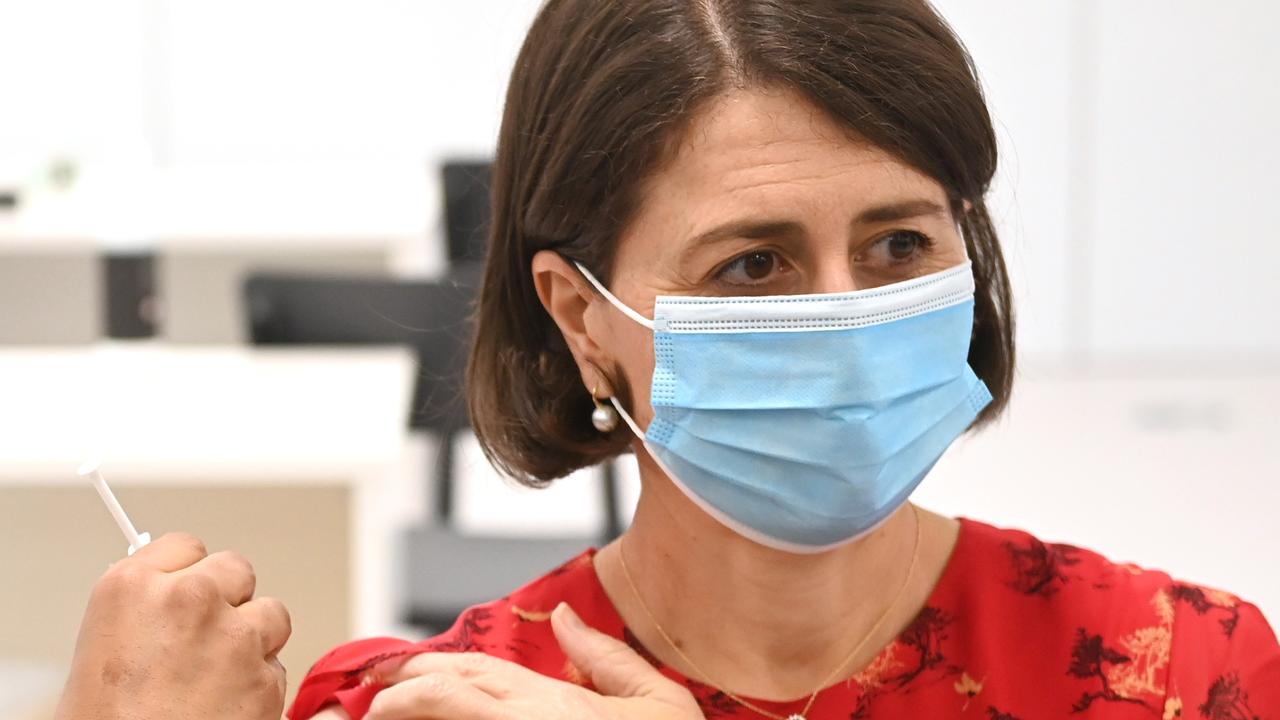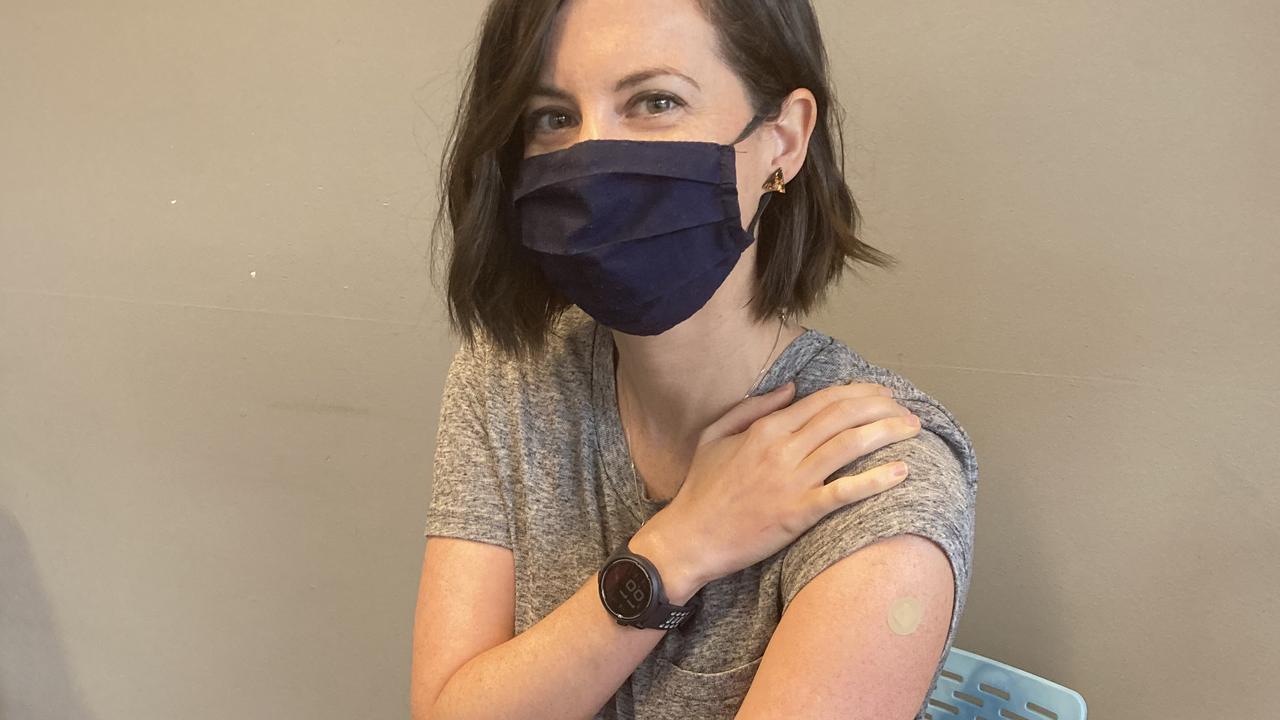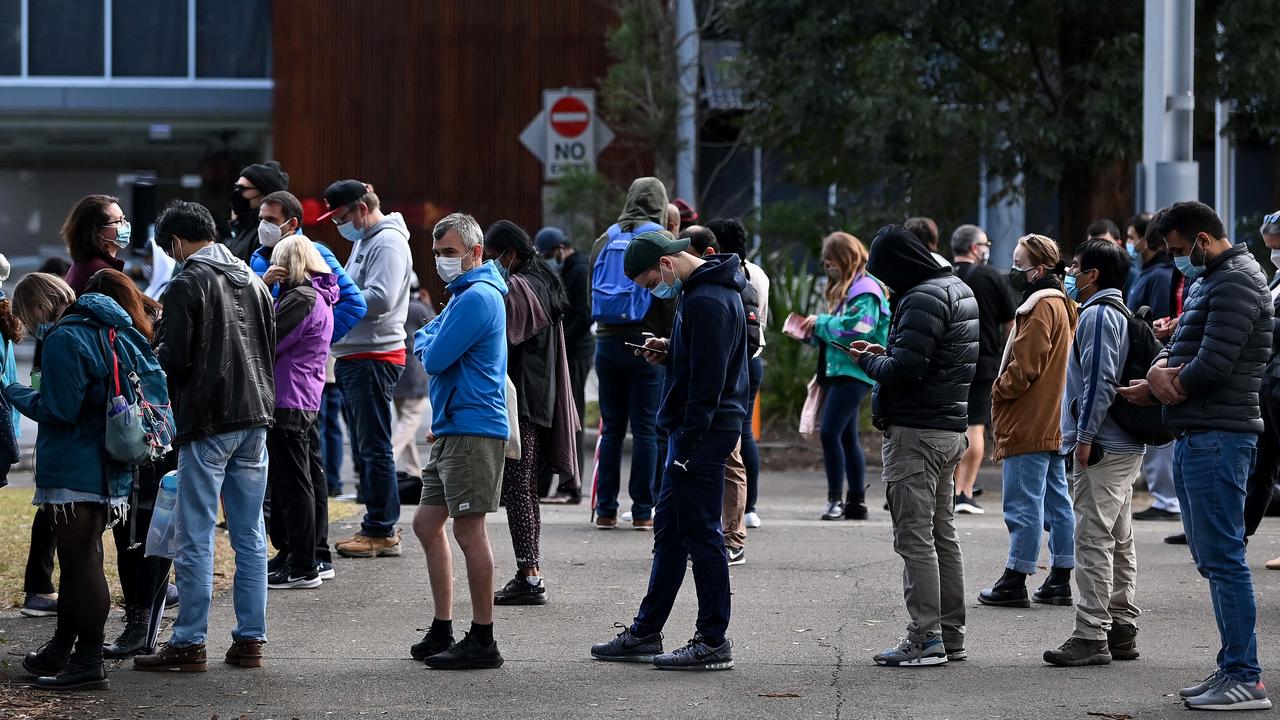AstraZeneca: Everything you need to know about the vaccine
The advice about AstraZeneca has changed again leaving Aussies more confused than ever. Here’s what you need to know about the vaccine.
The advice on AstraZeneca keeps changing so it’s not surprising that many Australians are confused about whether they should get the jab.
Greater Sydney’s Delta outbreak has also added a sense of urgency with many now eager to get vaccinated so they can be protected against the coronavirus as cases surge.
But the AstraZeneca vaccine is only recommended for Australians over the age of 60 due to the risk of rare but serious blood clots in those who are younger.
Anyone under 60 has been recommended to get the Pfizer vaccine, however, supplies are limited and only those aged between 40 and 59 years old are currently able to get bookings.
Those under the age of 40 are able to get AstraZeneca if they understand the risks and still want to get the jab.
Amid the Greater Sydney outbreak, this week the Australian Technical Advisory Group on Immunisation (ATAGI) also recommended people reduce the length of time between their first and second AZ shots for people in an “outbreak situation”.
It also suggested young people “reassess the benefits to them” of getting vaccinated.
Vaccinating against Covid-19 is the only way for Australians to get their normal lives back, but as a nation we’re struggling.
News.com.au’s Our Best Shot campaign answers your questions about the Covid-19 vaccine roll out.
It’s fair to say the vaccine rollout has confused Australians. We’ll cut through the spin and give you clear information so you can make an informed decision.
So how should someone navigate all these changes? This is what you need to know.
RELATED: Seven words that end all lockdowns
I’m over 60 years old, should I get the AstraZeneca jab?
The short answer is yes, experts are recommending you get the AstraZeneca jab. This is because the benefits of the vaccine — in avoiding hospitalisation or death from Covid-19 — are higher than the risk of getting a serious blood clot.
Older people are particularly susceptible to covid’s worst impacts.
Only five of the 912 deaths in Australia from Covid-19 have been in people younger than 50 years old.
The rest were among those aged 50-59 (15 deaths), 60-69 (38 deaths), 70-79 (158 deaths), 80-89 (380 deaths) and over 90 years old (316 deaths).
For every 100 people aged 70-79 years that got covid in 2020, around 38 were hospitalised, seven were admitted to an intensive care unit and four died.
In NSW, where authorities are struggling to contain an outbreak in Greater Sydney, those who catch Covid-19 have a one in 40 chance of ending up in intensive care, according to ABC’s Dr Norman Swan.
Compare this to the risk of developing the blood clotting condition, thrombosis with thrombocytopenia syndrome (TTS), which is only 1.4 per 100,000 for those aged between 60-69, and 1.9 (around one in 50,000) for those older than 80.
The risk of dying from the condition is even smaller (0.5 per million), with some pointing out that it’s about the same risk of being struck by lightning (0.4 per million).
So far there have been two deaths from TTS in Australia, with another suspected death identified this week, but no deaths have occurred after a second dose so authorities are urging anyone who has already had their first dose of AstraZeneca to get their second jab too.
RELATED: Survey reveals why people aren’t getting vaccinated

I’m under 60 years old, should I get the shot?
Answer: It depends
Factors to consider include whether you are living in a hotspot with lots of virus circulating in the community.
Some young people have decided that a one in 1 million risk of dying from a blood clot is worth the risk so that they can enjoy the protection of vaccination and help protect their loved ones and others in the community.
Authorities have not recommended under 60s get AstraZeneca because the risk of blood clots is higher for those who are younger, and the benefits of vaccination are not as compelling because they are less likely to be hospitalised or to die if they catch covid.
Only five of the 912 deaths in Australia from covid have been in those aged under 50.
However, as authorities have pointed out this week, young people are not immune to the impacts of coronavirus.
NSW chief health officer Dr Kerry Chant told reporters on Thursday that four of the 19 people in intensive care were younger than 50. One was in their 20s, another in their 30s and two were in their 40s.
In its latest statement ATAGI recognised the increased benefit of getting AstraZeneca for those in areas dealing withcCovid outbreaks and suggested people “reassess the benefits to them” but has so far not changed its advice.
RELATED: Why some people are more likely to take AZ risk

For someone younger than 50, the chance of getting a blood clot is estimated at 3.1 per 100,000, although this is not an exact figure as not many young people have got the AstraZeneca jab in Australia.
Infectious diseases expert Professor Peter Collignon of Australian National University told news.com.au the chance of someone in their 40s getting a blood clot was around one in 80,000. The risk of dying from this was about one in one million.
In comparison, no one in this age group would be expected to die in a low-risk covid scenario, if there was an infection rate similar to the first wave of covid in Australia. About 2.6 per 100,000 would be hospitalised.
Sydney’s current outbreak has an infection rate similar to the first wave but ATAGI has noted the risk could be higher in certain areas where the virus is circulating more.
NSW authorities have warned the virus is circulating in three main local government areas — Fairfield, Canterbury-Bankstown and Liverpool — with Fairfield particularly at risk.
In a higher risk scenario, similar to what happened during Victoria’s second wave, there is an estimated death rate of 0.1 per 100,000 for those who get covid. The hospitalisation rate would also be higher, at 16.7 per 100,000, with 2.6 intensive care admissions prevented.
Are there other side effects to getting blood clots?
Medical experts are now aware of the blood clot risk and what symptoms to watch out for, so are able to identify and treat those who get TTS more quickly, which improves death rates.
However, TTS can still be a serious condition even if it doesn’t result in death. While some cases can be relatively mild, others could result in severe morbidity.
About one in four people who get TTS need intensive care treatment however as of July 1, all but three patients had been released from ICU, an update from the Therapeutic Goods Administration (TGA) reported.
In Australia, about 3 per cent of people who got TTS have died.
RELATED: Australians who get blood clots to get compensation
Should you bring forward your second shot?
To make things a little more confusing, ATAGI has also made a new recommendation about how far apart people should have their first and second dose of AstraZeneca.
ATAGI has said in outbreak situations (like the one happening in Greater Sydney) a gap of between four and eight weeks is preferred. Previously people had been advised to get their second dose after 12 weeks.
NSW authorities have now said people should get their second dose after six weeks.
The change has worried some people as it was previously suggested waiting 12 weeks provoked a better immune response in the body.
But former ATAGI chair and vaccine expert Professor Terry Nolan told 7.30 the difference was not “materially very large”. The data on this was also based on a small clinical trial so the results were “imprecise” and not “black and white”.
“It also says nothing about any difference in efficacy against severe disease, which we don’t know about,” Prof Nolan said.
So basically the advice is, if you are living in an area where there is virus circulating such as Greater Sydney, it may be a good idea to get your second dose earlier, as it will provide more protection against infection.
“What we’re recommending is actually that short term protection you get from your second dose in an outbreak situation is more important than any potential long-term effectiveness you get from a delayed interval,” ATAGI co-chair Chris Blyth told 7.30.
RELATED: Fed up Millenials rush to get vaccinated

When will Pfizer be available?
Another factor that people are weighing up is whether they should wait for Pfizer to become available.
Prime Minister Scott Morrison has said more shipments of Pfizer will be arriving earlier than originally scheduled.
“We’ll get up to a million doses a week from the 19th of July,” Mr Morrison told Sunrise on July 9.
This means the number of Pfizer doses available will rise to 4.5 million a month from August.
However, it’s not clear when the vaccine will be opened up to other age groups.
Health Minister Greg Hunt said Australia was on track to have everyone offered their first dose by the end of the year.
“We believe that we are on track and that view is strengthening, that every Australian who wishes to be vaccinated will be offered a vaccine this year, and we want as many of them as possible to take it up,” he told ABC’s James Glenday on Tuesday.
At the moment about 33 per cent of the adult population have got at least one dose, with authorities now delivering about 890,000 vaccinations a week.
How effective is AstraZeneca against Delta?
Despite the bad press that AstraZeneca gets, it is still a very good vaccine at protecting people against the coronavirus — even the more infectious Delta strain.
Real world data from Public Health England published in a pre-print paper showed AstraZeneca was 92 per cent effective in preventing hospitalisation in those who got the Delta strain, once someone had both doses.
This is very similar to the protection from Pfizer, which is 96 per cent effective at preventing hospitalisation after two doses.
When it comes to stopping people from getting the disease, AstraZeneca provides 67 per cent protection against symptomatic disease after two doses. Pfizer provides 88 per cent protection.
Other benefits to consider include protection against complications associated with long Covid.
Getting vaccinated can also reduce the risk of passing the virus to close contacts including family, friends and work colleagues, and may also reduce community spread of the virus.




